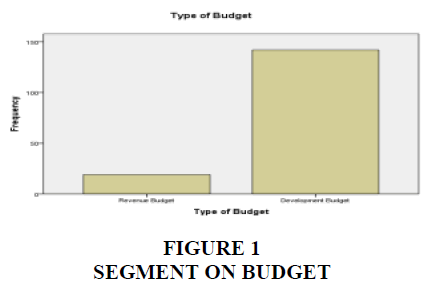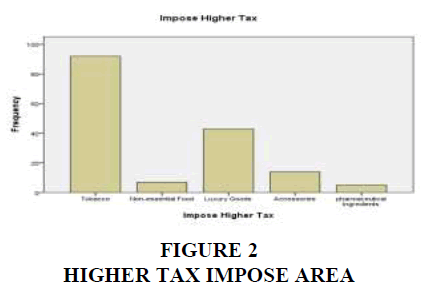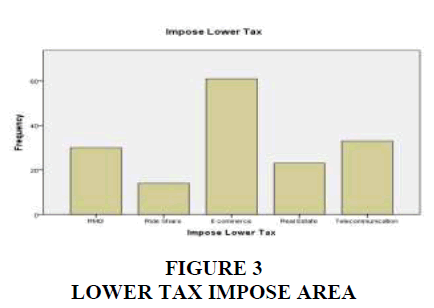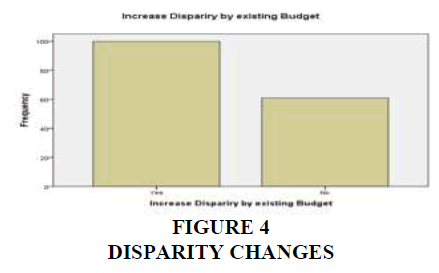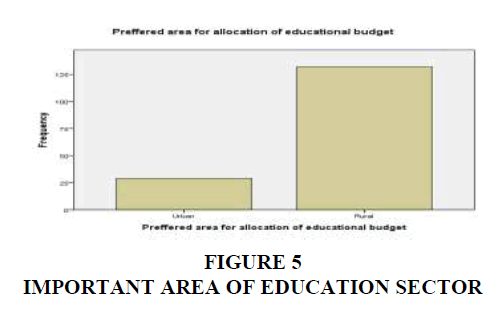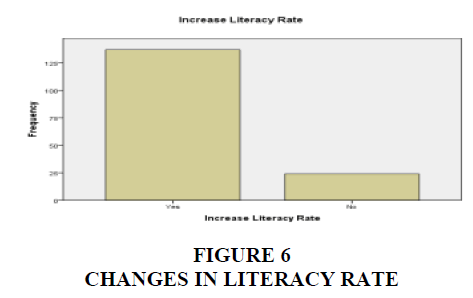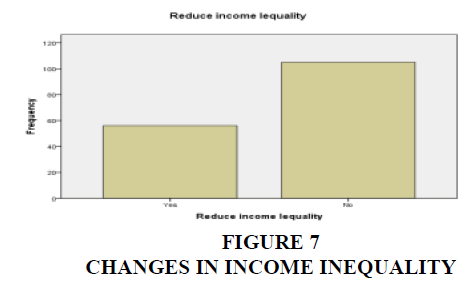Research Article: 2019 Vol: 18 Issue: 4
Strategic Thoughts and Expectations of Students on the National Budget, 2019-20 in Bangladesh
Md. Masum Iqbal, Daffodil International University
Sunjida Khan, Daffodil International University
Nurul Mohammad Zayed, Daffodil International University
Abstract
Education is one of the important indicators of nation’s economic development. So education sector should be highlighted in budgetary allocation. The more budget is allocated, the more improvement is occurred. Government and policy makers can consider students’ expectation while preparing budget and should emphasis not only on public sector but also on private sector as well. Students are the major part of the population. So their thoughts and expectations may reflect on the upcoming budget and can play a significant role. A bunch of students of Daffodil International Universities showed their views and expectations on forthcoming national budget 2019-2020. This study tried to seek the youth population specially the students’ expectations and thoughts on budget 2019-2020. Since they are directly involved in education sector, they expect more budgetary allocation on this segment for the improvement of this sector and at the same time they have identified some problems and issues on existing budget. The study will be a success when they justify their opinions and use these outcomes for further considerations.
Keywords
National Budget (NB), Thoughts and Expectation (T&E), Youth Population (YP), Education, Budgetary Allocation (BA), Economic Development (ED).
Introduction
A budget being an annual financial statement provides incomes and expenditures for the year. As students are the major part of the population, their thoughts and expectations play a vital role to prepare National Budget. The Department of Business Administration in Daffodil International University, tried to seek some views and outlooks of students’ regarding upcoming Budget, fiscal year: 2019-2020. For this purpose, randomly selected students were acted as respondents in primary survey. By using statistical software for close ended information and their opinion for open ended information, the study found some valuable outcomes that may help the government as well as policy makers for preparing budget. The study will be successful when they justify their opinions and use these outcomes for further considerations.
Literature Review
According to Marchessault (2013), governments are increasingly adopting Public participation in fiscal processes in order to enhance their decision-making. Bilge (2015) said that the demands and the expectations of the citizens from the public sector have been diversified. Because of the changes in the information and communication technologies, citizens expect a high quality and efficient service and demand its provision fast. Ouda (2003) argued that budget reforms, especially in developing countries are driven by the need to improve efficiency and effectiveness of the public financial management. Webber (2007) said that moving to a unified budget, however, can be a technically and managerially demanding task that involves legislative, institutional, and budget presentation and expenditure management issues. Countries undertaking this step need to understand each of these dimensions, how they interact with each other, and how they may affect various aspects of the budget system. Gomez et al. (2005) stated that the International Budget Project developed the Open Budget Questionnaire, a measurement tool to evaluate public access to budget information from the perspective of civil society organizations. Michel (2006) the purpose of budgeting is to help decision makers make informed choices about the provision of services and capital assets and to promote stakeholder participation in the process. Rahman et al. (2016) thoughts that current level of budgetary allocation for education in Bangladesh is by any standard well below than what is required. Schick (2011) said that the budget is essentially a contract between citizens and the state, and that the contract is in a great state of disrepair. So, after reviewing numbers of paper it was found that stakeholder participation has significant impact on the budget process and this study tries to seek students’ participations on the budget process which is the new specify arena for Bangladesh as well as developing countries.
Objectives
Youth is the power of a nation that is represented by the students. Students are the major part of the population. So their thoughts and expectations may reflect on the upcoming budget and can play a significant role. The study sets out the following objectives:
1. To find out the understanding of budget of the students in tertiary level.
2. To explore the expectations of students on forthcoming budget.
Methodology
For primary level data, a sample survey was conducted among students. Total 165 numbers of final year students of various departments in Daffodil International University were randomly selected for the interview. A well-structured pre-tested questionnaire was formatted to collect information of students concepts and expectations’ regarding National Budget on Bangladesh. The questionnaire covered some basic/major information such as more budgetary allocated segment, higher tax and lower tax impose product, effectiveness of current budget for minimizing inequality, etc. and reflected various suggestions of the participants regarding upcoming budget. All the collected data were analyzed by using SPSS v-16.0 program.
Results
In this study, there were two types of variables, qualitative and quantitative. From the quantitative analysis, the following outcomes were found:
More Allocated Segment on Budget
This issue implies that 88.2% agreed with more budgetary allocation on development sector where 11.8% agreed with non-development or revenue sector (Figure 1).
Area on Impose Higher Tax
In the content of higher tax imposing items, the study states that 57.1% responded to increase tax on tobacco, 26.7% on luxury goods, 8.7% on accessories, 4.3% on non-essential goods and 3.1% on pharmaceutical ingredients respectively (Figure 2).
Area on Impose Lower Tax
37.2% supported to decrease tax on e-commerce, 20.5% are on telecommunication, 18.6% are on RMG, 14.3% are on real estate and 8.7% are on ride share (Figure 3).
Changes Disparity by Existing Budget
In the study, 62.1% thought that current budget structure increases disparity among society while 37.9% did not think so (Figure 4).
Important area of Education Sector require more Budgetary Amount
The study found that 47.8% supported to allocate more budget on primary education sector, 25.5% on technical education, 10.6% on tertiary sector, 9.3% on secondary and 6.8% are on higher secondary (Figure 5).
Changes in Literacy Rate
85.1% agreed that budget allocation of different programs on educational sector increases literacy rate while 14.9% disagreed (Figure 6).
Changes in Income Inequality by Budget on Fiscal year-2018/19
The study found that 65.2% of students think that the budget on fiscal year 2018-19 does not reduce income inequality whereas 34.8% think alternative (Figure 7).
Discussion
To minimize recurring expenses, most of the participants agreed to cut the salary for employees with poor performances, to maintain and use computers and other equipment in such way so that they need less maintenance cost, to lower travel and related expenses etc. According to Marchessault (2013), Governments are increasingly adopting Public participation in fiscal processes in order to enhance their decision-making. Since youth is the power of a country, so allocation of more budget for youth development (like higher education, specific training for skill developments, increasing technical knowledge) leads to development of the nation’s economy. In the issue of major expectation from upcoming budget, most of the participants agreed to reduce tax on such products which are mostly consumed by middle and poor income group of people. Another important area focused by respondents is nation’s communication system. They expected more budgetary allocation for the development of this sector. Some of them emphasized on development on infrastructures, defense, and fundamental level of education. Rahman et al. (2016) said that allocation of finance to priority areas of education is less than adequate. Almost 50% respondents supported to raise more budgetary allocation in primary level of education. They thought, to develop nation’s education, base should be strong. So if Government allocates more money in the development of primary level, a well structure foundation may lead to well-educated nation in future. 30% supported to allocate more budgets for technical education. Because most of the populations are engaged in technical works in home and abroad and contribute to increase nation’s remittance continuously, so more budgetary allocation is needed for the betterment for this sector. Almost 75% thoughts that budget allocation on education sector is inadequate. To achieve sustainable economic development, the education should be focused. To ensure skilled and trained up instructors, necessary logistics supports, reduce drop out, sufficient accommodation, proper utility services etc. significant budgetary amount on education sector should be increased. They also thoughts that Government should allocate more money for Research and Development (R&D) sector.
Conclusion and Policy Suggestions
Students are the major part of the population. So their thoughts and expectations may reflect on the upcoming budget and can play a significant role. Gomez et al. (2005) stated that the International Budget Project developed the Open Budget Questionnaire, a measurement tool to evaluate public access to budget information from the perspective of civil society organizations. This study tried to seek the students’ expectations and thoughts on budget 2019- 2020. Since they are directly involved with education sector, they expect more budgetary allocation on this segment. Rahman et al. (2016) thoughts that current level of budgetary allocation for education in Bangladesh is, by any standard, well below than what is required. Education is one of the important indicators of nations’ economic development. So education sector should be highlighted in more budgetary allocation. The more budget is allocated, the more improvement is occurred. Government and policy makers can consider students’ expectation while preparing budget and should emphasis not only on public sector but also on private sector as well. Suggestions are given below:
1. Students should concentrate upon on the research and find out the problem through research and also present the research findings to the Government authority.
2. More budgetary allocation is required to raise quality and skill development of youth.
3. The unemployment rate is 4.2% but youth unemployment rate is 30%. There is a huge gap between employer requirement and employability.
4. Government should allocate more budgets on education sector to minimize the gap and create skilled and qualified youth rather than achieve certificate or GPA.
5. A number of applicants appear in the job interview but they are not enough qualified for the post. Lack of skill and employability is the main reason for this mismatch.
6. Universities should produce skilled student who can fulfill job market requirements.
7. The amount of budgetary allocation is not very poor on education sector but it should be utilized properly.
8. Innovation especially on technological innovation based budget allocation is an important factor for education sector.
From above valuable suggestions and recommendations, it is clear that the length of the study is small but its significant is large. Ouda (2003) argued that budget reforms, especially in developing countries are driven by the need to improve efficiency and effectiveness of the public financial management. The study tried to find out the proper reflection of youth people on national budget through research and it can play a significant contribution to the government, Policy makers, and Decision makers for preparing national budget.
References
- Bilge, S. (2015). A new approach in public budgeting: Citizens’ budget. Journal of International Education and Leadership, 5(1), 1.
- Gomez, P., Friedman, J., & Shapiro, I. (2005). Opening budgets to public understanding and debate. OECD Journal on Budgeting, 5(1), 7-36.
- Marchessault (2013). Public participation and the budget cycle: Lessons from country examples.
- Michel, R.G. (2002). Organization and design of an effective budget function. GFOA Budgeting Series, 5(1), 1-53.
- Ouda, H. (2003). Public sector accounting and budgeting reform: The main issues involved. In Expert Consultative Meeting on Public Administration and Public Accounting Development, with Stress on Electronic Tools. Beirut: Auspices of the United Nations-Economic and Social Commission for Western Asia, (ESCWA).
- Rahman, M., Khan, T.I., & Sabbih, M.A. (2016). Education budget in Bangladesh: An analysis of trends, gaps and priorities?. Asian Development Review, 23(2).
- Schick, A. (2011). Repairing the budget contract between citizens and the state. OECD Journal on Budgeting, 11(3), 1-27.
- Webber, D. (2007). Integrating current and development budgets. OECD Journal on Budgeting, 7(2), 93-107.
